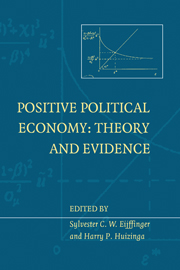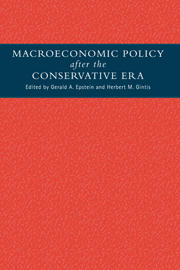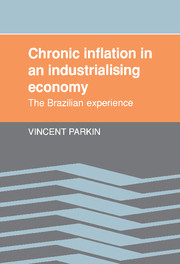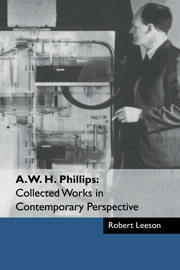Positive Political Economy
This book investigates how observed differences in institutions affect political and economic outcomes in various social, economic, and political systems. It also examines how the institutions themselves change and develop in response to individual and collective beliefs, preferences, and strategies. This volume tackles both monetary and real topics in an integrated way, and represents the first coherent empirical investigation of positive models of political economy. The various contributions discuss issues of great topicality not just for Europe, but for all developed economies: why do central banks matter? What determines their independence? How do central bank independence and exchange rate regimes affect monetary integration and activism? The volume also discusses the costs of a monetary union, unemployment benefits, and redistributive taxation.
- Tackles issues of enormous topical importance in Europe today like central bank's independence
- Authors are all well-known in the field
- Positive political economy is a fruitful and fashionable area of research for academics and policy makers
Product details
June 1998Hardback
9780521572156
316 pages
236 × 156 × 26 mm
0.625kg
36 tables
Available
Table of Contents
- Preface
- 1. Introduction Sylvester Eijffinger and Harry Huizinga
- Part I. Monetary Institutions and Policy:
- 2. Reputational versus institutional solutions to the time-consistency problem in monetary policy Susanne Lohmann
- 3. Monetary Union and monetary federalism: reciprocity political business cycles Jürgen von Hagen
- 4. The ultimate determinants of central bank independence Sylvester Eijffinger and Eric Schaling
- 5. Central bank autonomy and exchange rate regimes - their effects on monetary accommodation and activism Alex Cukierman, Pedro Rodriguez, and Steven Webb
- 6. Uncertainty, instrument choice, and the uniqueness of Nash equilibrium: microeconomic and macroeconomic examples Dale Henderson and Ning Zhu
- 7. New empirical evidence on the costs of European Monetary Union Hélène Erkel-Rousse and Jacques Mélitz
- Part II. Exchange Rate Policy and Redistribution:
- 8. Exchange rate anchors and inflation: a political economy approach Sebastian Edwards
- 9. Why capital controls? Theory and evidence Gian Maria Milesi-Ferretti
- 10. The political economy of the Exchange Rate Mechanism Patrick Minford
- 11. Unemployment benefits and redistributive taxation in the presence of labour quality externalities Harry Huizinga
- Index.







